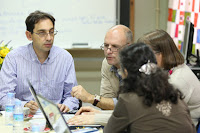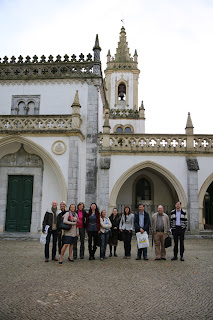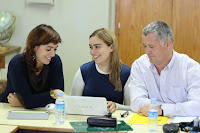
 Since 2010, the digital-earth.eu Comenius network is elaborating strategies for learning and teaching with geo-media in European schools.
Since 2010, the digital-earth.eu Comenius network is elaborating strategies for learning and teaching with geo-media in European schools. From October 23-26, 2012 the "Teacher Training and Education" working group met in Beja, Portugal.
 13 partners from 7 European countries elaborated a guidance
booklet
for teacher training and education with geo-media for all school levels.
Besides text development, dissemination strategies, and a training
course
concept for teacher trainers at a European level were discussed and
confirmed.
13 partners from 7 European countries elaborated a guidance
booklet
for teacher training and education with geo-media for all school levels.
Besides text development, dissemination strategies, and a training
course
concept for teacher trainers at a European level were discussed and
confirmed. Once again, it was a pleasure to work with the group, and our Portuguese partners hosted a perfect meeting including local authorities and a national educational manager.


